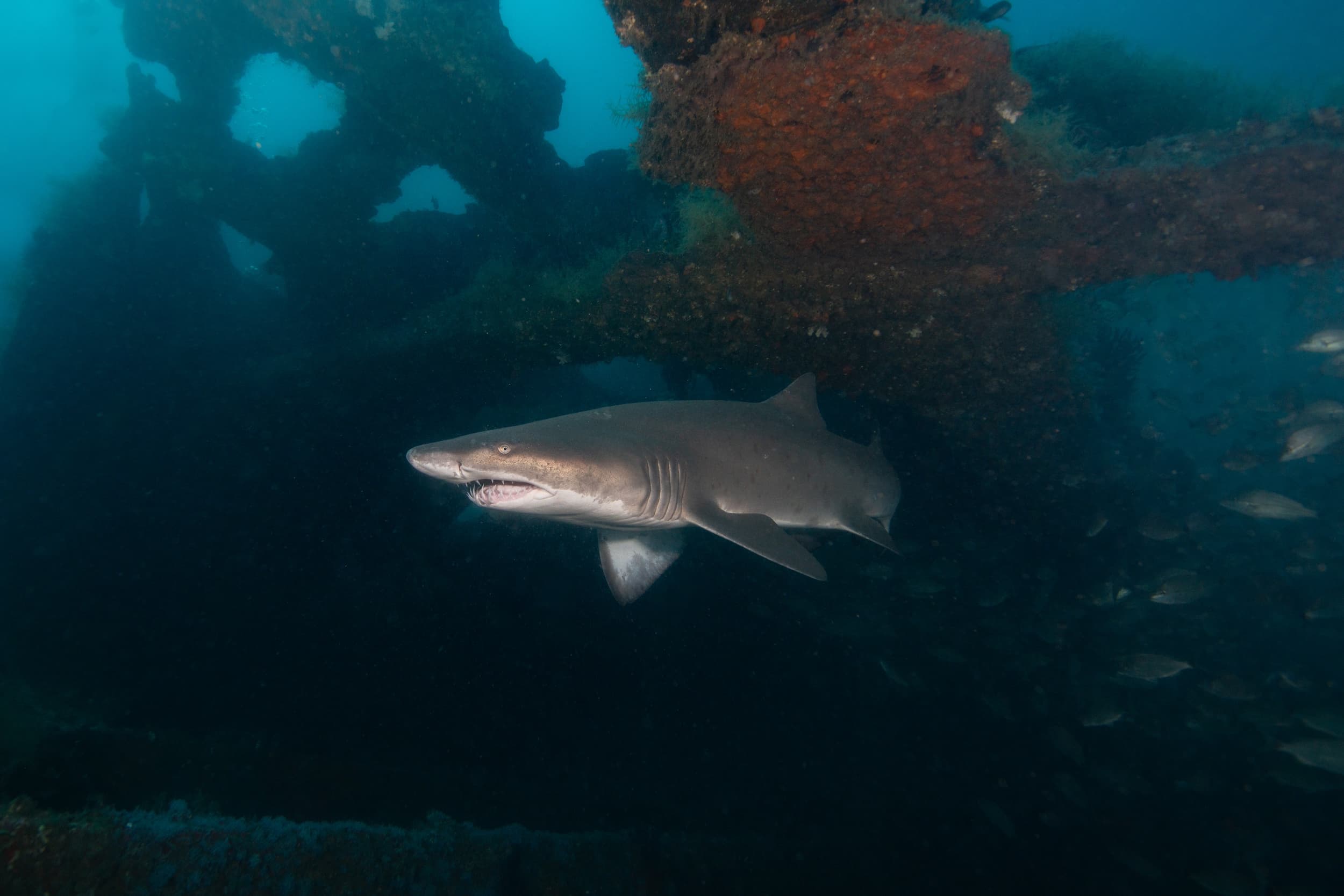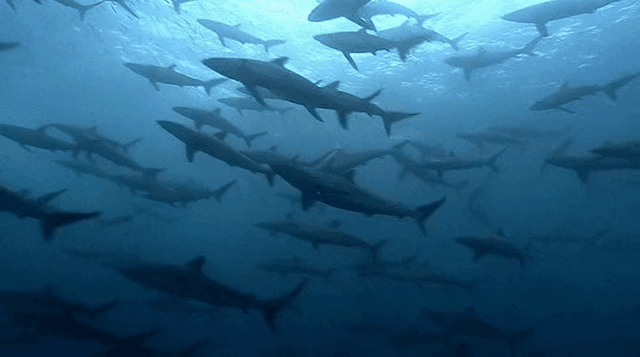
North Carolina Shark Conservancy
Our mission is to connect sharks, conservation scientists, and the public through research, education, and awareness. Based in the Outer Banks, we spotlight the vital role North Carolina’s coast plays in the lifecycles of numerous shark species. Through science-based advocacy and collaboration, we strive to support conservation efforts and promote a deeper understanding of these important, but often misunderstood animals.
What we do

Healthy shark populations play a vital role in maintaining the balance of ocean ecosystems and contribute to larger, more robust stocks of many fish species. In North Carolina, this means sharks benefit coastal communities that rely on commercial and recreational fishing.
Overall, shark populations across all species have been in decline for more than fifty years. While some species show signs of recovery, current numbers remain far below historical levels. By collecting population data for shark species off our coast, we can better understand and protect both resident and migratory sharks and gain insights into the overall health of the marine ecosystem.
Conservation is an ongoing process that takes many forms, depending on the population status of individual species. Some shark species are abundant and require only basic monitoring, while others are threatened and need more active conservation efforts. Ultimately, our work benefits not only the sharks but also our fishermen and the state of North Carolina.
Why we do it

North Carolina’s marine ecosystem is shaped by the convergence of warm and cold ocean currents, the broad continental shelf, and the distinctive geography of the Outer Banks. Nicknamed the “Graveyard of the Atlantic” for its many shipwrecks, the region's history has helped shape the coastal topography and created productive artificial reefs that support diverse marine life.
This resource-rich environment is home to many resident shark species and serves as a critical migratory corridor for transient sharks. However, scientists are still working to understand how and why these animals use the area.
The North Carolina Shark Conservancy (NCSC) is dedicated to uncovering these patterns through data collection from both live and stranded sharks. The organization also works to raise awareness among fishermen, residents, and tourists about the essential role sharks play in the region’s marine ecosystem.
How we do it

At the North Carolina Shark Conservancy, we are committed to advancing shark research, conservation, and community engagement with integrity, transparency, and respect. We prioritize the wellbeing of wildlife, uphold the highest standards of scientific rigor, and act responsibly in every interaction with the public, partners, and the coastal ecosystems we serve.
We approach all research and educational efforts with honesty, accountability, and a commitment to safety. We value collaboration, welcome diverse perspectives, and treat every community member, volunteer, and partner with fairness, inclusivity, and professionalism.
Our work is guided by a deep respect for the ocean and a belief that conservation succeeds when it is shared, transparent, and community-centered. We strive to earn and maintain the trust placed in us by conducting ourselves ethically, responsibly, and in service of the sharks and coastal environments that define the Carolina seas.
